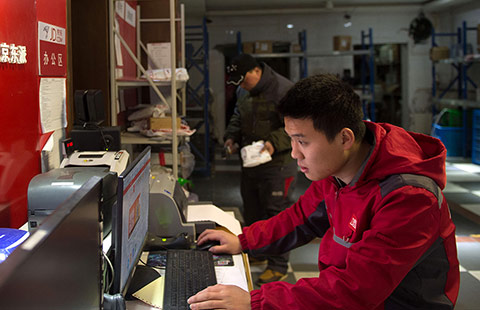A difficult but necessary beginning to recovery
"We're keen to encourage more emigre Wenzhou business people to come back," said Cen.
"The financial plaza will eventually work as a platform to help SMEs and individuals to solve financial problems via multiple methods and with lower risks," said Cen adding that his team has been busy preparing the projects, contacting businessmen, and negotiating with banks over the past year.
The establishment of a 1 billion yuan trust fund was agreed between the Export-Import Bank of China and the Bank of China to solve the loan problems of small and micro-sized enterprises.
Cen also persuaded the Zhejiang branch of China Development Bank and the Wenzhou branch of Shanghai Pudong Development Bank to agree to provide up to 3 billion yuan in standby loans to qualified enterprises at the end of January, with the first batch of loans totaling 9.3 million yuan.
A small and micro-sized enterprises self-service bank is also due to be opened by Huaxia Bank to supply private company owners with loans.
The latest figures from the financial plaza showed that 20 financial agencies had gathered more than 18.6 million yuan for small and micro-enterprises since January.
A website has been launched and a financial reform service hotline will be made available to the public soon.
"We want to let every single individual feel the existence of the financial reform," said Cen.
Setting up an online platform and minimizing the risks for money lending activities are bringing more direct benefits to individual lenders.
"We are applying an online auditing package and examining software to monitor borrowers who need cash, to minimize the risks for lenders," said Wang Xiuzhi, chairman of Wenzhou Small and Medium-sized Enterprises Financing Service Center, which owns E-baijia, an online platform to control and monitor risks before transactions.
The center was launched to ensure that companies get low-interest loans with controllable risks.
Wang added that the center also aims to perform as a credit platform for SMEs, which have experienced difficulties after thousands of businesspeople failed to repay their loans since September 2011.
Nevertheless, the reform also introduced 18 peer-to-peer financing agencies to build platforms for banks and small and micro-sized enterprises with available loans.
"We are able to match potential lenders with borrowers according to their requirements, and allow individual lenders to pledge their assets for bank loans more quickly," said Chen Yan, deputy general manager of Sudaibang, a peer-to-peer loan service provider in Wenzhou.
Sudaibang offers loans at an average annual interest rate of 13 percent.
Chen added that new types of objects of pledge such as second-hand vehicles and second mortgages will be the main area of expansion to enable SMEs to obtain higher amounts of money.
Wenzhou was selected for the pilot financial reform on 28 March, 2011, to regulate the collapsing private-financing system following a crisis arising from widespread loan defaults by factory owners and investors.
We also recommended:

















